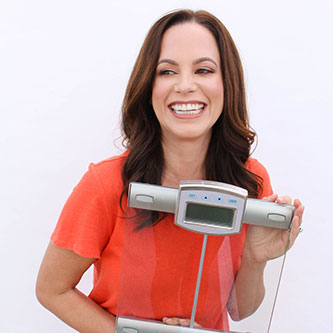If you have noticed your adrenals crashing, you might have to start thinking about whether or not you need adrenal medications. I would love to take some time out today to share some insights with you on whether or not adrenal medications are a good idea
- Have any questions?
- 480-767-9018
- support@in-goodhealth.com

Update – Epstein Barr Virus – the hidden cause of Hashimoto’s?
March 16, 2017
How To Choose The Best Herbs For Your Adrenals
March 30, 2017
Update – Epstein Barr Virus – the hidden cause of Hashimoto’s?
March 16, 2017
How To Choose The Best Herbs For Your Adrenals
March 30, 2017Adrenal Fatigue and Adrenal Disease
First, I want to talk about the concept of adrenal fatigue really quickly. When we think about the body being fatigued, sometimes we immediately assume that our bodies are unable to do something. In the case of adrenal fatigue, that’s not really how it works. It is not that our bodies cannot produce cortisol, it is just that they do not want to. So, the adrenals actually are not “fatigued” at all.

Case Study: Low Adrenal Function
One of my doctors here recently told me about one of his patients. He had a gentleman come in who was suffering from low adrenal function – his adrenals had effectively crashed. His previous doctor actually had put him on hydrocortisone, and for the first few months he noticed that he had a lot more energy. Things were working and the patient was happy.
After a while, though, he started putting on a lot of weight – close to thirty pounds, actually. He has experience significant fluid retention, and his blood sugar was getting unstable (heading towards diabetes). But whenever he stopped or lowered the dose, his energy simply plummeted, worse than ever before. He was in a bind, and that is when he came to see us.
So, we immediately got to work helping the health of his adrenals. What it comes down to is focusing on what is known as the hypothalamic–pituitary–adrenal (HPA) axis. It’s actually the health of that whole unit that’s what matters most. Once we got that entire unit healthier, we got him on a compounded medication. Which included:
- Cortisol, in small measureable amounts
- Botanical medications
This proved to work as a stepping stone, to get the patient off of his dependency to cortisol. That way, he did not need it anymore to maintain his energy, and was able to get back to feeling much better. That’s a quick case study about how these medications can help patients, so let’s dive deeper into more about arenal medications for adrenal health.
Which medications are used?
Let’s consider some of the most popular medications used for adrenal health and adrenal fatigue. This way, we can get a really solid understanding of the major categories that these medications fall under.
Glucocorticoids
The first is going to be glucocorticoids. These are steroids which basically control glucose metabolism. Cortisol itself actually affects blood sugar, glucose metabolism, so glucocorticoids help combat that issue. There are two kinds of glucocorticoids that we will look at: natural and synthetic.
Natural glucocorticoids include:
- Cortisol – compounded and not in a pre-made medication.
- Cortisone – the same as hydrocortisone.
- Adrenal Glandular Supplements – these contain active cortisone, but the amounts are not regulated or predictable.
- Injectable Adrenal Glandulars – these include adrenal cortisol extract (ACE) which are used for injection in emergency room type situations. I have seen it used, but I am not a fan because it is not always produced in a safe fashion (and can cause dangerous side effects).
- Glycyrrhizin – an extract/concentrate from licorice, made from un-concentrated crude licorice root. It slows down the body from weakening cortisol, by making it into cortisone. What is interesting to note is that licorice candies in the United States actually do not contain any licorice!
Synthetic glucocorticoids include:
- Dexamethasone
- Prednisone
- Kenalog
- Prednisolone
- Triamcinolone
- Betamethasone
When it comes to synthetics, most of the ones listed here are not the same level of potency. Some of them can have the same amount, but in different milligram amounts. This table, listed here, actually does a great job of showing that:
| Compound | Anti-inflammatory Potency | Na+-retaining Potency | Duration | Equivalent Dose (mg) |
| Cortisol | 1 | 1 | 8 – 12 | 20 |
| Cortisone | 0.8 | 0.8 | 8 – 12 | 25 |
| Fludrocortisone | 10 | 12.5 | 8 – 12 | N/A |
| Prednisone | 4 | 0.8 | 12 – 36 | 5 |
| Prenisolone | 4 | 0.8 | 12 – 36 | 5 |
| Triamcinolone | 5 | 0 | 12 – 36 | 4 |
| Betamethasone | 25 | 0 | 36 – 72 | 0.75 |
| Dexamethasone | 25 | 0 | 36 – 72 | 0.75 |
Mineralocorticoids
The next category that we have are mineralocorticoids. When we talk about these, we first need to understand that our adrenals do a lot. They regulate our blood sugar, but they are also regulating our blood electrolytes and minerals – this is especially the function of the mineralocorticoids.
Fludrocortisone is the main one of these that the body makes. Florinef is a medication which is made as an analog to that. For those who have adrenal compromise, who have very low blood pressure (which makes retaining sodium very difficult). In some cases, florinef can act as a helpful and fairly safe way of regulating low blood sodium levels.
The problem here is that if someone does not need florinef, and takes it anyways, it can result in higher blood pressure. But, for some, it can be incredibly helpful. There is also research that shows the benefits of florinef when it comes to speech anxiety. Because it helps with blood pressure, it can help with standing for long periods at a time. When you speak in front of a crowd, and you are standing, this can be a distraction that disappears when your blood pressure is lower.

Steroids
There are also the steroids that the adrenal glands make. The main ones to focus on there are going to be:
- DHEA
- Pregnenolone
Who needs these medications?
Now that we have gone through the medication categories, we need to do some thinking on the types of people who need these medications. It is for those who cannot make them on their own, because there glands cannot produce them. But we do need to get more specific than that, so here is a deeper breakdown of who truly needs adrenal medications.
Addison’s
Those who have ongoing Addison’s disease – think of it like the Hashimoto’s of adrenals. It is a such where the immune system has attacked the adrenals, and damaged them to the point that they require help. It basically takes away the building blocks which help you make these important hormones.
Other Medications
Drugs, like ketoconazole (Nizoral), metyrapone (Metopirone) and mitotane can actually suppress the adrenal glands to the point where they are unable to function. In these cases, it is less about needing adrenal medications, and more about getting off your current medications.
Rarer Causes
There are also some rarer causes that might hurt our adrenals ability to function, which include:
- Amyloidosis
- Hemochromatosis
- Blood loss
- Metastases
- Sarcoidosis
- Tuberculosis
Do you need medications for adrenal fatigue (aka low cortisol)?
When your adrenals are crashing, it is important to know that your cortisol is low because your body is simply trying to lower cortisol. This is not the same as when the body is unable to make cortisol, and therefore cortisol is low – it is completely different.
Think about it like this: if your body is a car, and it’s run down and needs to get checked – you are most likely going to carefully drive it to the closest garage. What you are not going to do is race there as fast as you can, because you want to take it easy on your car and not cause it to fall apart before it even reaches the garage. That’s what your body is doing in this case, it is lowering your cortisol level because it does not want your body to be “running on empty.”
What we need to do is give our bodies time, and to understand why our bodies are producing low cortisol. It all comes down to root causes – as it often does in many aspects of our health. When we get a better sense of why our body is reacting the way it is, than we can really approach a solution. Low cortisol output might leave us feeling fatigued, but simply bringing outside cortisol into our systems is not going to solve the problem long-term.
Key Insight: Listen to your body, and get to the root causes of why you are producing less cortisol and experience adrenal fatigue.
How can I be sure I don’t need adrenal medications?
There are definitely some ways you can figure out if your cortisol is low by your body’s intent, or by a state of disease. The simplest thing you can do is measure ACTH. It is a common blood level, and any doctor can order it.
There are two basic scenarios to help us differentiate whether or not we are in a state of disease, or whether our bodies have a bigger role to play:
- If our cortisol is low, and our ACTH score is high, it means that our bodies are unable to produce cortisol.
- If our cortisol is low, and our ACTH score is normal (or low), it means that our bodies are intentionally producing less cortisol.
Key Insight: All it takes is one simple blood test – the ACTH helps us get a better understanding of whether or not we are dealing with an adrenal disease, or whether our bodies are more at play in the process.
When it comes to Addison’s disease, we can actually see measurable adrenal antibodies. They confirm that the body is actually attacking the gland.
Do adrenal medications help with those with adrenal fatigue?
The answer is yes, adrenal medications might help with adrenal fatigue in the short term. But, that is the key problem, these benefits do not last – stimulants tend to have that effect on people! When you rely on this sort of method, you are going to be pushing your health in the wrong direction.
There is a huge amount of risk when it comes to taking cortisol when you do not need it. Just some of the risks include:
- Weight gain
- Diabetes
- Osteoporosis
- Immunocompromise
- Insomnia
- Acne
- Mood changes
- Thinning of skin
- Skin rash
- Sweating
- Chronic pain
- Numbness or tingling
- Fainting
- Growth delays
- Muscle wasting
- Abdominal pain
- Headaches
- Heart disease
- Fatigue
- Fluid retention
- Diarrhea
- Facial swelling
- Facial hair growth in women
- Fever and chills
- Dizziness
- Difficulty concentrating
That’s a lot of risk for very short term benefit. It can also create a dependency, which means that you might not be able to stop as easily.
What can I do instead of taking adrenal medications?
You can definitely heal your crashed adrenals, without the help of medications. There are some easy to implement solutions that you can do, so that you can stay on the right path and quit feeling fatigued. That’s the great part of all this: when it is not a disease, it is completely reversible – all it takes is some effort and a plan.
Here are three strategies I want to share with you:
- Carb Cycling (Read: 7 Proven ways to lose weight with adrenal fatigue) – a low-carb breakfast and a high-carb dinner, for example
- Adaptogens
- REST – a huge part of decreasing fatigue is increasing rest
- Adrenal Reset Diet – I have dedicated a whole chapter of my book, “Crashed,” on this topic (Click Here)
In Conclusion: Without the help of medications, I have seen multiple cases where people are feeling great – or very close to great – in only a few months. There is a solution, and it is easy to go with, and you need to do is put forward the effort and you will see the best results.
How do I get off my adrenal medications?
If you are now discovering that you did not need adrenal medications in the first place, you might be asking yourself how you can safely get off them. First, you have to identify and treat your root causes – finding out what is going on with your adrenals, and making them feel better so that you can feel better.
It also takes medical guidance, and a gradual taper off your medications. You might even needed compounded versions of cortisol. It allows for a gradual taper quite effectively, so that you can take baby steps to feeling better.
Key Insight: In order to gradually taper off your adrenal medications, consider compounded cortisol of 1 – 2 mg / week.
The next question is, how long should you tapering off your medication for? Let’s take a look at this chart to help you:
| Total Dose (of cortisol) | Total Time (weeks) |
| <5 mg | 4 – 6 |
| 6 – 10 mg | 6 – 8 |
| 11 – 25 | 8 – 12 |
| >25 | >12 |
Are your adrenal fatigued or diseased?
We have talked so much today about the importance of understanding the state of your adrenals. This is going to inform so much of your health, and is going to keep you away from potentially dangerous adrenal medications – for those who do not need them. Take great care of yourself, and check in on the state of your adrenals by taking the adrenal quiz today.

P.S. Whenever you are ready, here is how I can help you now:
- Schedule a Thyroid Second Opinion with me, Dr. C, Click Here for Details
- Need help to choose supplements? Click ‘Help Me Decide Here'
- Get my top books Here
Dr. Alan Glen Christianson (Dr. C) is a Naturopathic Endocrinologist and the author of The NY Times bestselling Hormone Healing Cookbook, The Metabolism Reset Diet, and The Thyroid Reset Diet.
Dr. C’s gift for figuring out what works has helped hundreds of thousands reverse thyroid disease, heal their adrenals, and lose weight naturally. Learn more about the surprising story that started his quest.







